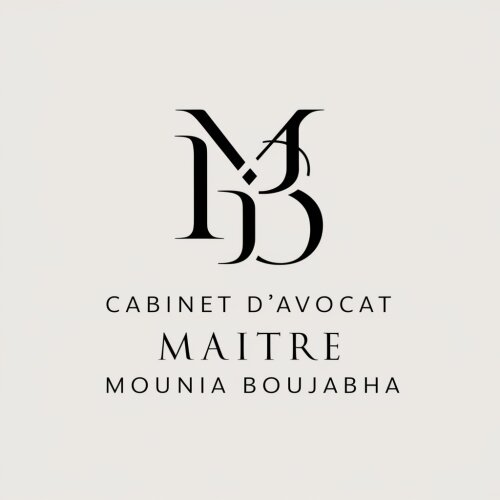Best Civil Rights Lawyers in Rabat
Share your needs with us, get contacted by law firms.
Free. Takes 2 min.
List of the best lawyers in Rabat, Morocco
About Civil Rights Law in Rabat, Morocco
Civil Rights Law in Rabat, Morocco, is primarily governed by the Constitution of Morocco, which establishes fundamental rights and freedoms for all citizens. These rights include equality before the law, freedom of speech, freedom of assembly, and the right to non-discrimination. Morocco has also committed to several international human rights treaties and conventions, reinforcing its legal framework for civil rights. Rabat, as the capital city, serves as a hub for legal advocacy and governmental activities related to civil rights.
Why You May Need a Lawyer
Individuals in Rabat may require legal assistance in civil rights for several reasons. Common situations include facing discrimination in employment, education, or housing based on race, gender, religion, or disability. Other scenarios might involve unlawful detention or treatment by government authorities, violations of freedom of speech or assembly, and ensuring access to public services. A lawyer specialized in civil rights can offer guidance, representation, and advocacy to protect and enforce these fundamental rights.
Local Laws Overview
Key aspects of civil rights laws in Rabat include the Constitution, which provides a framework for individual rights. Morocco's Penal Code outlines offenses against personal dignity, such as discrimination and hate speech. Laws related to associations and public gatherings regulate how citizens can organize and demonstrate. Additionally, the Family Code addresses equality in family matters. These laws, alongside international commitments, help shape the protection and promotion of civil rights in Rabat.
Frequently Asked Questions
What are my basic civil rights in Rabat, Morocco?
In Rabat, your basic civil rights include equality before the law, freedom of speech, freedom of assembly, and protection from discrimination based on race, gender, religion, or other statuses.
How can I file a complaint if my civil rights have been violated?
To file a complaint about a civil rights violation, you can contact local law enforcement, a human rights organization, or a civil rights lawyer who can guide you through legal proceedings.
Are there any specific laws protecting women’s rights in Rabat?
Yes, women’s rights in Rabat are safeguarded under the Family Code and the Constitution, which emphasize gender equality and protect against discrimination and violence.
What should I do if I experience workplace discrimination?
If you experience workplace discrimination, document the incidents, report them to your employer, and consult a civil rights lawyer to explore legal actions available to you.
Can I participate in protests and public demonstrations?
Yes, you have the right to participate in peaceful protests and demonstrations, provided they comply with local laws concerning public gatherings and demonstrations.
Where can I find pro bono legal services in Rabat?
Pro bono legal services are offered by several non-governmental organizations and law firms in Rabat. The Bar Association of Rabat may also provide referrals.
How does Morocco's legal system handle hate speech?
Hate speech is addressed under Morocco's Penal Code, which criminalizes speech that incites hatred, discrimination, or violence against individuals based on certain characteristics.
What recourse does a victim of police misconduct have?
Victims of police misconduct can file a complaint with the appropriate authorities, including the Inspector General’s office or seek assistance from human rights organizations.
How do I ensure my rights are protected when dealing with government authorities?
To protect your rights, maintain thorough records of all interactions, know your legal rights, and consider consulting a lawyer if you feel your rights are being infringed upon.
Are there any organizations that specialize in defending civil rights in Rabat?
Several organizations, such as the Moroccan Human Rights Association and the National Council for Human Rights, focus on defending and promoting civil rights in Rabat.
Additional Resources
For further assistance, consider reaching out to the Bar Association of Rabat, the Moroccan Human Rights Association, and international bodies such as Amnesty International's local chapter. Governmental bodies like the National Council for Human Rights offer resources and support for citizens concerned with civil rights issues.
Next Steps
If you need legal assistance in civil rights in Rabat, start by identifying the nature of your issue and gathering relevant documentation. Seek legal counsel from an attorney specializing in civil rights. You can also reach out to local NGOs for support and guidance. Understanding your rights and the legal framework will empower you to take informed steps in addressing your civil rights concerns.
Lawzana helps you find the best lawyers and law firms in Rabat through a curated and pre-screened list of qualified legal professionals. Our platform offers rankings and detailed profiles of attorneys and law firms, allowing you to compare based on practice areas, including Civil Rights, experience, and client feedback.
Each profile includes a description of the firm's areas of practice, client reviews, team members and partners, year of establishment, spoken languages, office locations, contact information, social media presence, and any published articles or resources. Most firms on our platform speak English and are experienced in both local and international legal matters.
Get a quote from top-rated law firms in Rabat, Morocco — quickly, securely, and without unnecessary hassle.
Disclaimer:
The information provided on this page is for general informational purposes only and does not constitute legal advice. While we strive to ensure the accuracy and relevance of the content, legal information may change over time, and interpretations of the law can vary. You should always consult with a qualified legal professional for advice specific to your situation.
We disclaim all liability for actions taken or not taken based on the content of this page. If you believe any information is incorrect or outdated, please contact us, and we will review and update it where appropriate.









